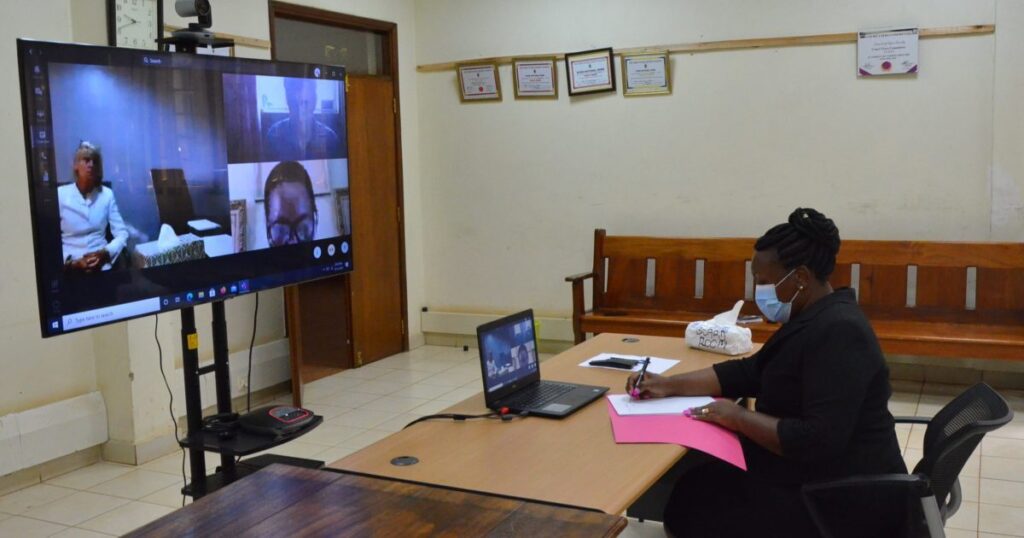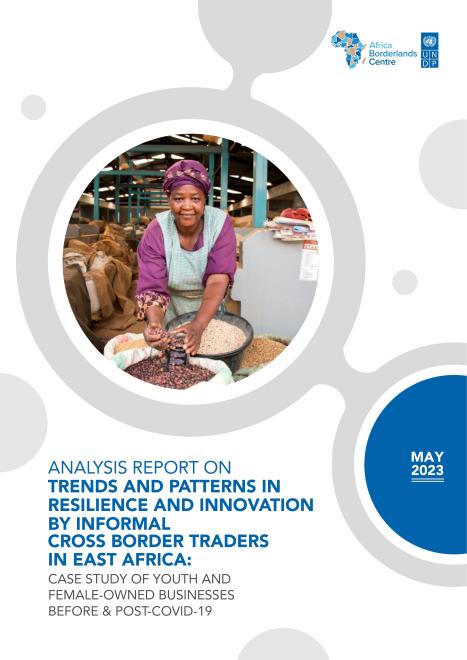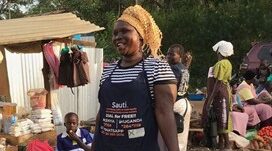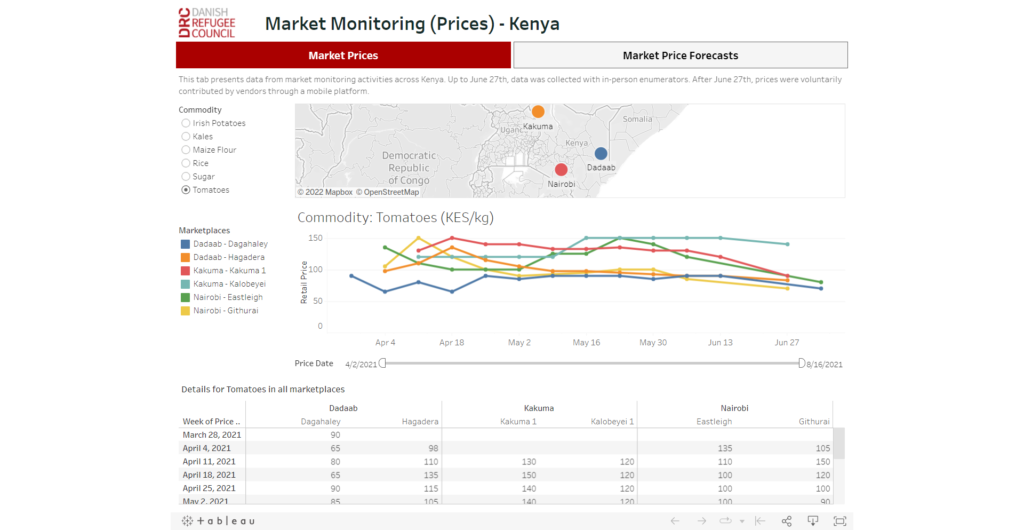Integrating Informal MSMEs into Continental Value Chains and the AfCFTASauti Trade Insights
Sauti East Africa, in collaboration with the United Nations Development Programme, has produced a report mapping the opportunities for integrating informal MSMEs into continental value chains and the AfCFTA.
As the African Continental Free Trade Agreement (AfCFTA) reveals new opportunities to promote inclusive trade, opportunities arise for United Nations Development Programme (UNDP) and other international non-governmental organizations (INGOs) to play a catalyzing role and increase the agreement’s benefits to Africa’s informal micro, small and medium-sized enterprises (MSMEs). With this background, this study was guided by the following objectives:
- identify key sectors with significant potential for inclusion of informal MSMEs into Africa’s regional trade value chains;
- identify specific challenges and gaps that need to be addressed for facilitation of integrating informal MSMEs in regional trade and AfCFTA; and,
- identify entry points and propose specific recommendations for UNDP support to facilitate the increased participation of informal MSMEs’ in AfCFTA markets.
Research Context
For informal MSMEs, the most direct impact of AfCFTA relates to the signatories’ aspirations for the enlargement of the continental market, facilitated by the free movement of persons, capital, goods and services. However, no matter how well-grounded AfCFTA objectives are, they will remain elusive if informal MSMEs are poorly positioned to take full advantage of the opportunities emerging from the continental free trade area.
The primary methods employed by this study involved a literature review of academic and policy documents related to informal MSMEs involvement in regional value chains, key informant interviews with informal African MSMEs and an extensive peer review and validation process. Specific attention was paid to insights from the below three cross-cutting perspectives that align with value chain analyses.
- Production and processing: Where and how to integrate informal MSMEs producing goods and services from the current baseline into formal trade value chains in AfCFTA.
- Trade: Where and how to support informal MSMEs engaged in informal cross-border trade to formalize and comply with AfCFTA rules to fully benefit from the free trade regime.
- Market infrastructure and logistics: Where and how to support integration of informal MSMEs into regional value chains and AfCFTA through provision of infrastructure and digital solutions.
Report Findings
Mapping Informal MSME participation in prominent African Value Chains
A quantitative and qualitative exercise was conducted to identify priority sectors that considered the scale of informal MSME participation and the relative proportion of total cross-border trade. This served as a starting point to map the informal and formal value-chains for cereals, livestock and animal products, and fish and aquaculture. The value-chain mapping highlighted the following shared characteristics:
- Cross-border trade by MSMEs is the connective lynchpin for these value-chains, which integrates production sites with consumption centers across Africa;
- International importers from outside Africa are prominent in all three highlighted informal cross-border trade (ICBT) value-chains and are often integrated more efficiently with high-value retailers, supermarkets, and restaurant customers; and,
- All three value-chains – cereals, livestock and animal products, and fish and aquaculture rely heavily on value-add processors to make raw commodities export-ready for higher-value markets on the continent and abroad.
Challenges Facing MSMEs Participating in Regional Cross-border Value-chains
Interviews with informal MSME producers highlighted the perception that where, how, and to whom to sell their outputs was a two-track system with different associated costs: a relatively high-value, formal sector with high entry costs (e.g. quality standards, registration fees, etc.), or the informal sector with relatively lower entry costs. This two-track system is visualized below:
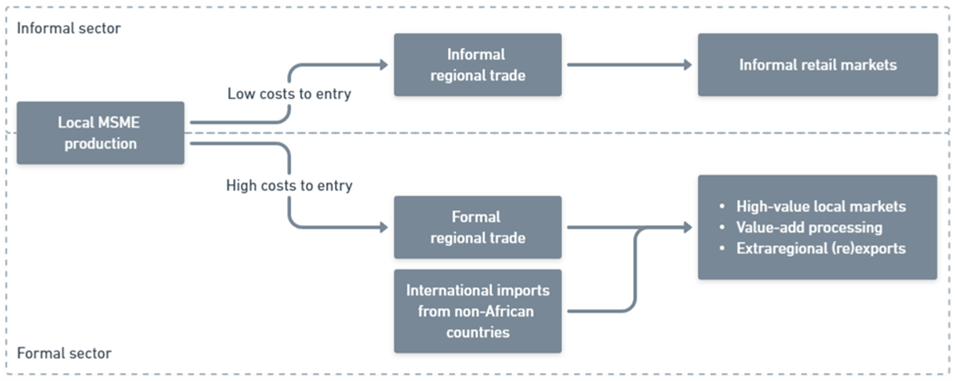 Sauti found that there are prominent factors that contribute to challenges facing MSMEs participating in regional cross-border value-chains. These factors include:
Sauti found that there are prominent factors that contribute to challenges facing MSMEs participating in regional cross-border value-chains. These factors include:
|
Production
|
Trade
|
Market Infrastructure and Logistics
|
Policy
Several entry points for UNDP and its partners to facilitate MSME-led trade within the context of AfCFTA have been suggested by this report. Recommendations are described below.
Leveraging the positions of women-led and youth-led MSMEs
- Recognize the importance and experience of women and youth issues in the success of regional value chain trade facilitation.
- Develop a more robust case for what these positive links with the AfCFTA implementation strategy look like so that youth and gender-specific practitioners may better understand their alignment with the AfCFTA agenda.
- Identify and leverage women and youth-led MSMEs as leaders in ICBT communities, early adopters of technology and effective mobilizers of technical resources.
The role of associations and cooperatives
- Promote the creation of, and strengthen existing, trade associations as centres of technical expertise, especially for women and youth.
- Recognize that trade associations and cooperatives are often organic and grassroots and they rely on local trust; therefore capacity-building mechanisms must prioritize organizational flexibility, agility and the personal nature of membership.
- Support mapping exercises that connect development practitioners and programmers with local trade associations and cooperatives involved in regional value chains.
The role of information and communication technologies (ICTs) and market systems digitalization
- Consider ICBTs level of technology and promote “accessible-first” ICT-led trade facilitation that meets the specific technology capacities of ICBTs.
- Consider ubiquitous channels of marketing already in use by informal MSMEs (e.g., WhatsApp and Facebook) and focus technical assistance on optimizing digital services that traders already know, rather than building new platforms.
- Promote interventions that work with digital online retailers, or marketing and communications training, to make onboarding MSMEs more seamless.
- Promote data publication and integration between ICBT-relevant data services and identify most impactful information-related frictions work with data publishers to avail this data.
The role of innovative financing and MSME trade finance
- Facilitate dialogue with credit regulators to raise awareness and strategic guidance around access to finance challenges faced by MSMEs and mitigate MSME finance risks.
- Collaborate with the private sector, financial institutions, national policymakers and regulators to strengthen and expand the coverage and affordability of trade finance offerings for informal MSMEs.
- Support technical assistance programmes for local village savings and loan associations (VSLAs) and recognize their utility for youth and women MSMEs in trade.
The role of policy localization, dialogue and coordination
- Facilitate policy dialogue to help ensure a feedback loop between local officials and national and regional counterparts to enhance collaboration at the point of service delivery for MSME trade activities.
- Directly engage MSMEs, as well as business and trade associations, in policy sensitization and capacity building programmes that focus on communicating the direct and specific advantages of AfCFTA for MSMEs.
- Facilitate access, use and coordination of relevant AfCFTA information services through partnerships with local organizations to avoid duplication of activities and working at cross purposes.
The recommendations presented in this paper seek to capture the principles of fostering innovation alongside advancing local ownership and inclusion. In combining these principles, this study seeks to highlight opportunities that can have meaningful and inclusive economic impact for informal MSMEs across the continent.
